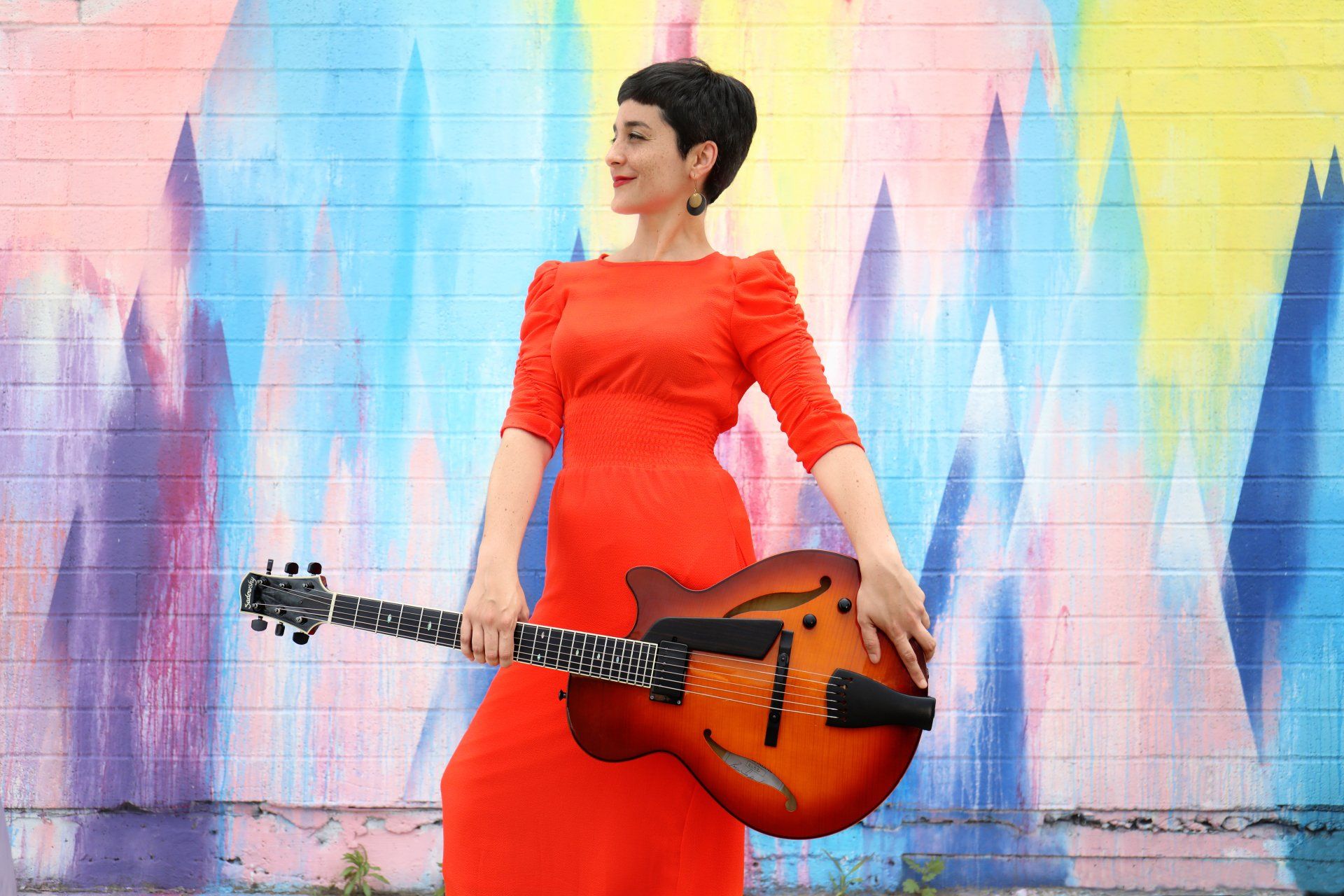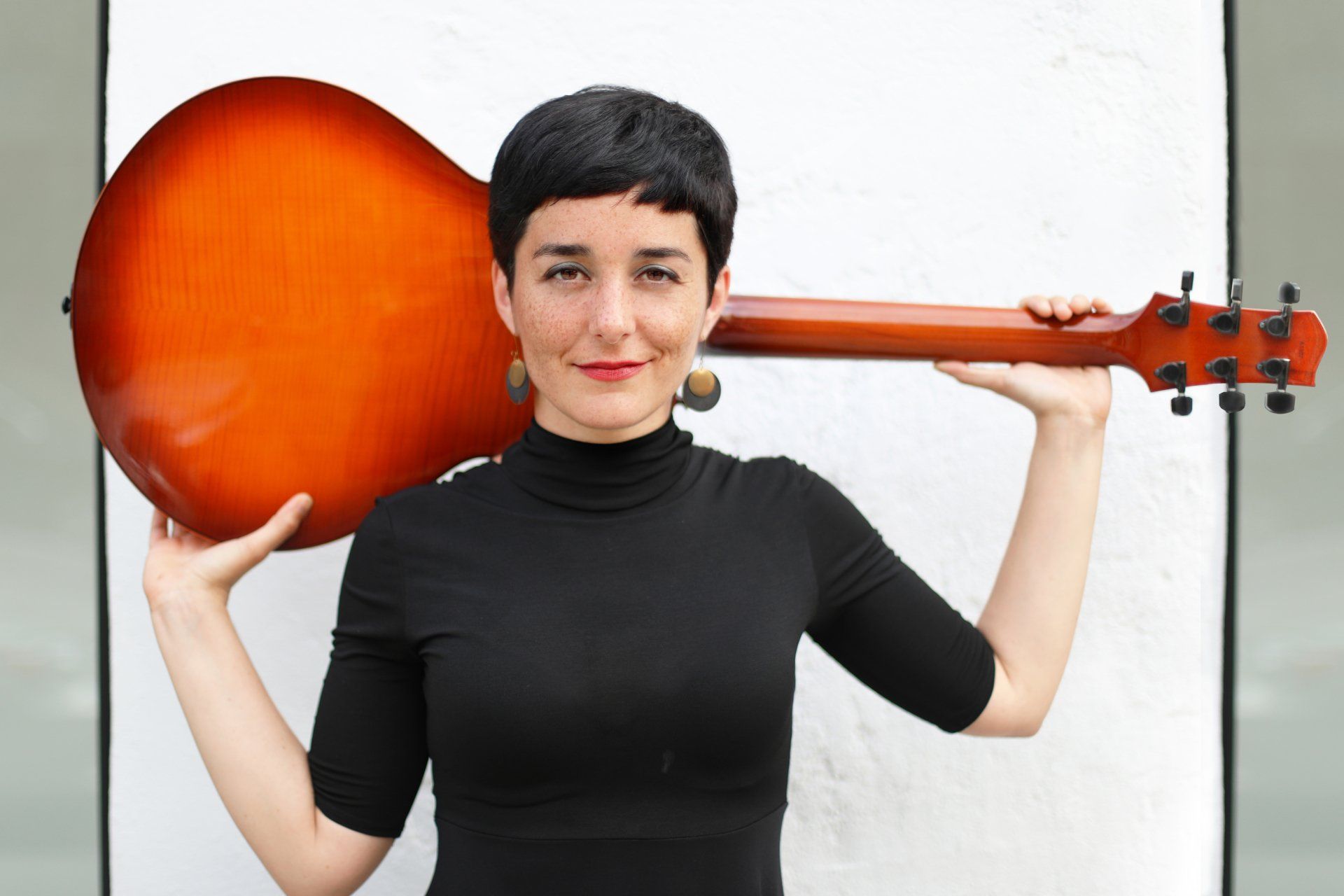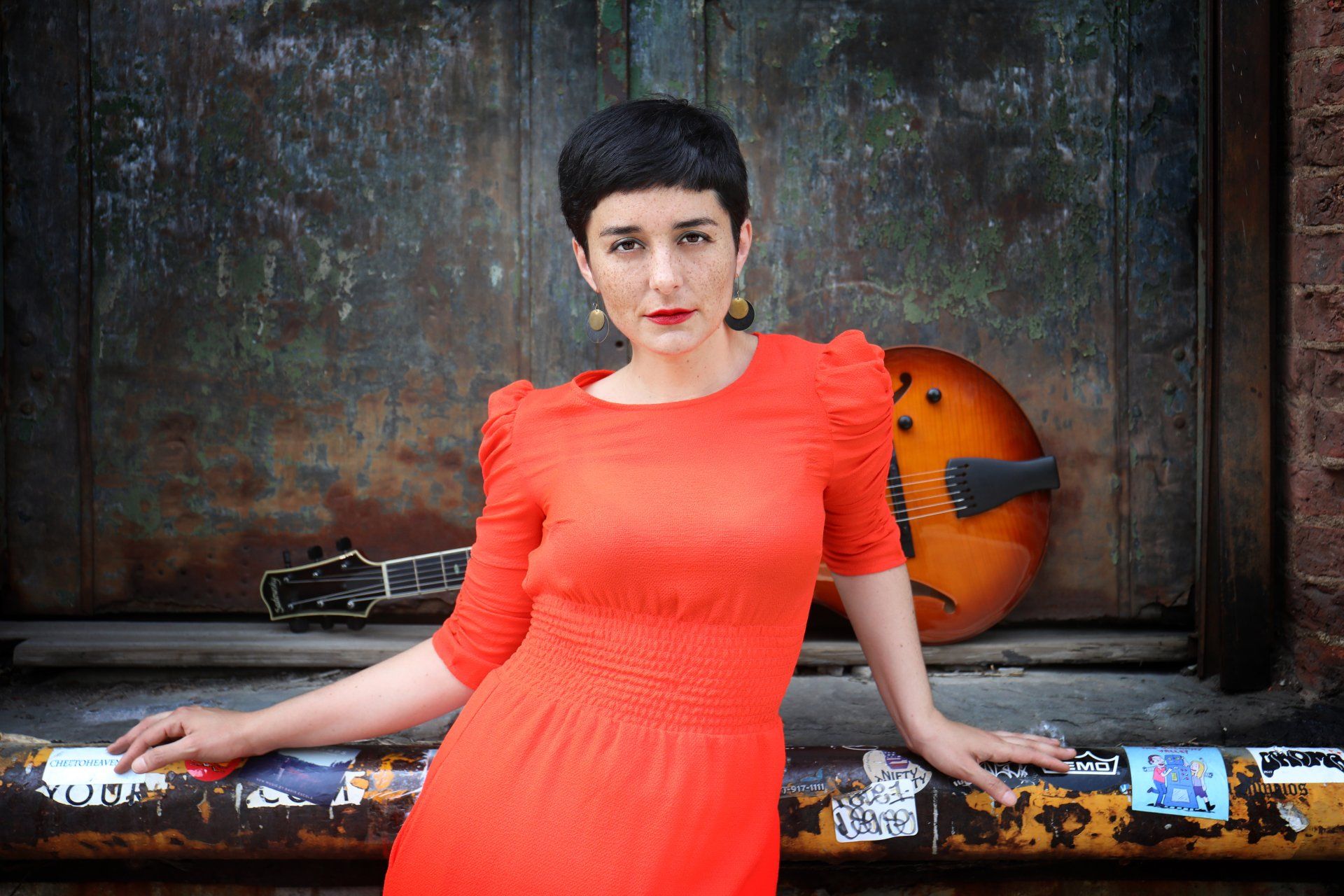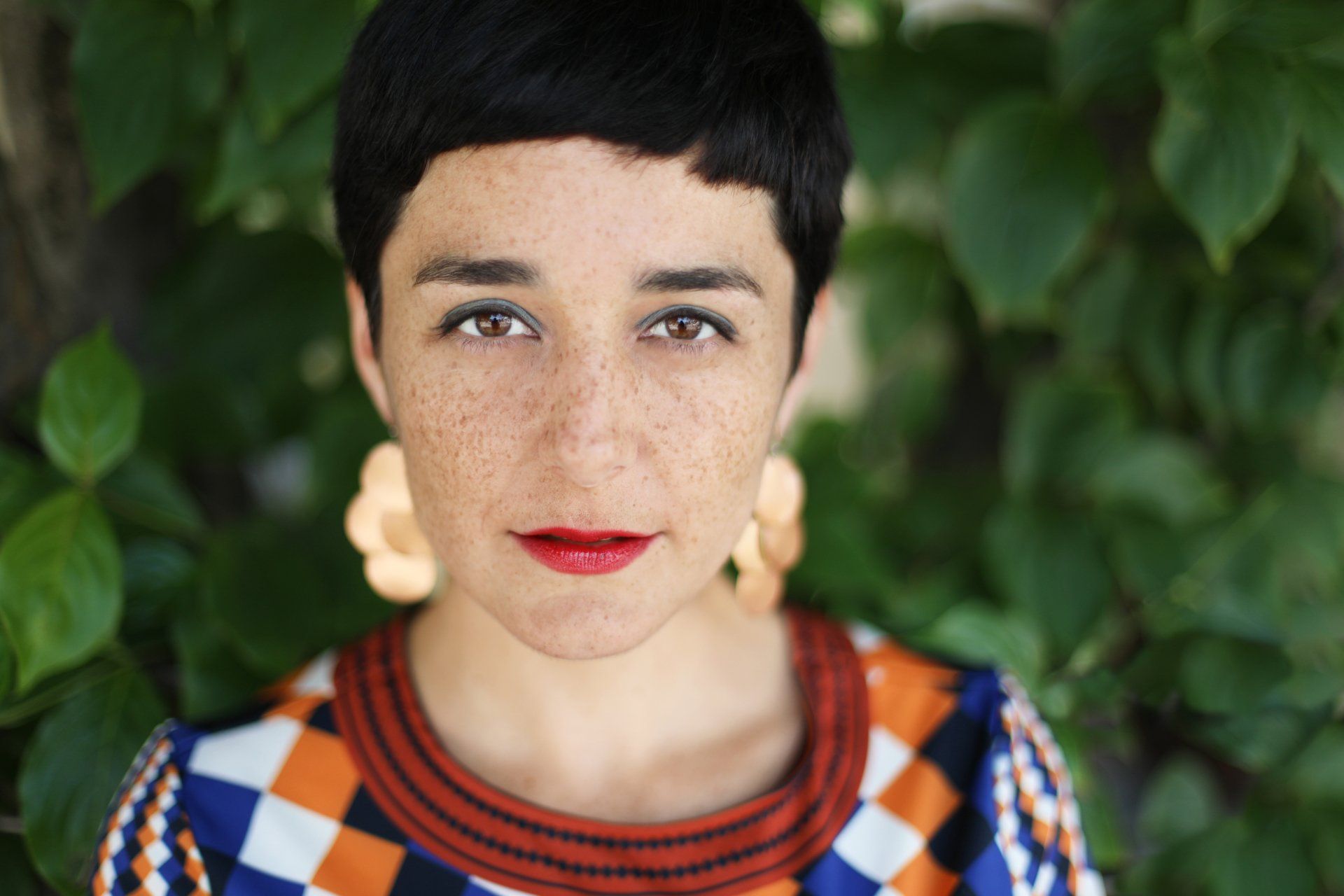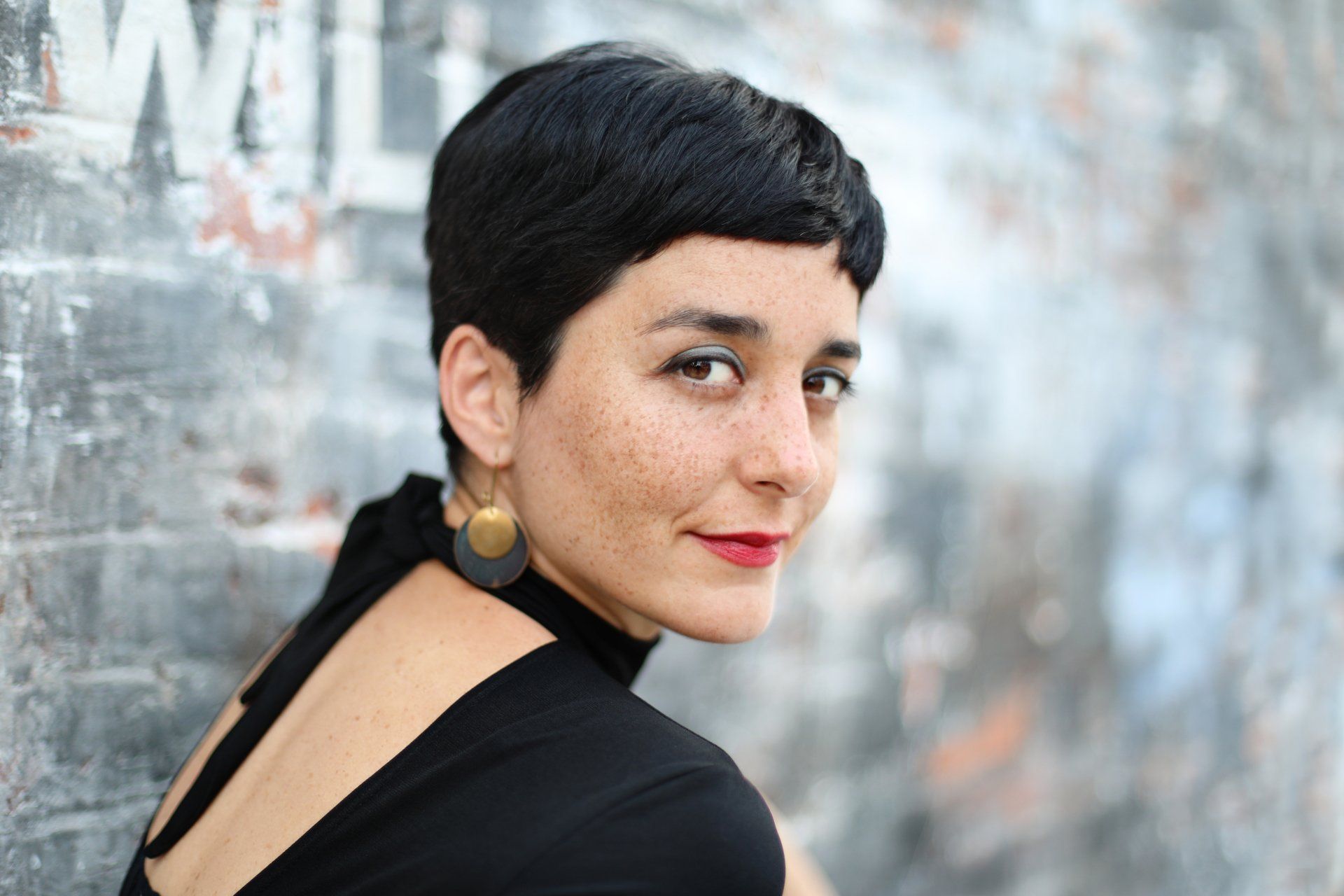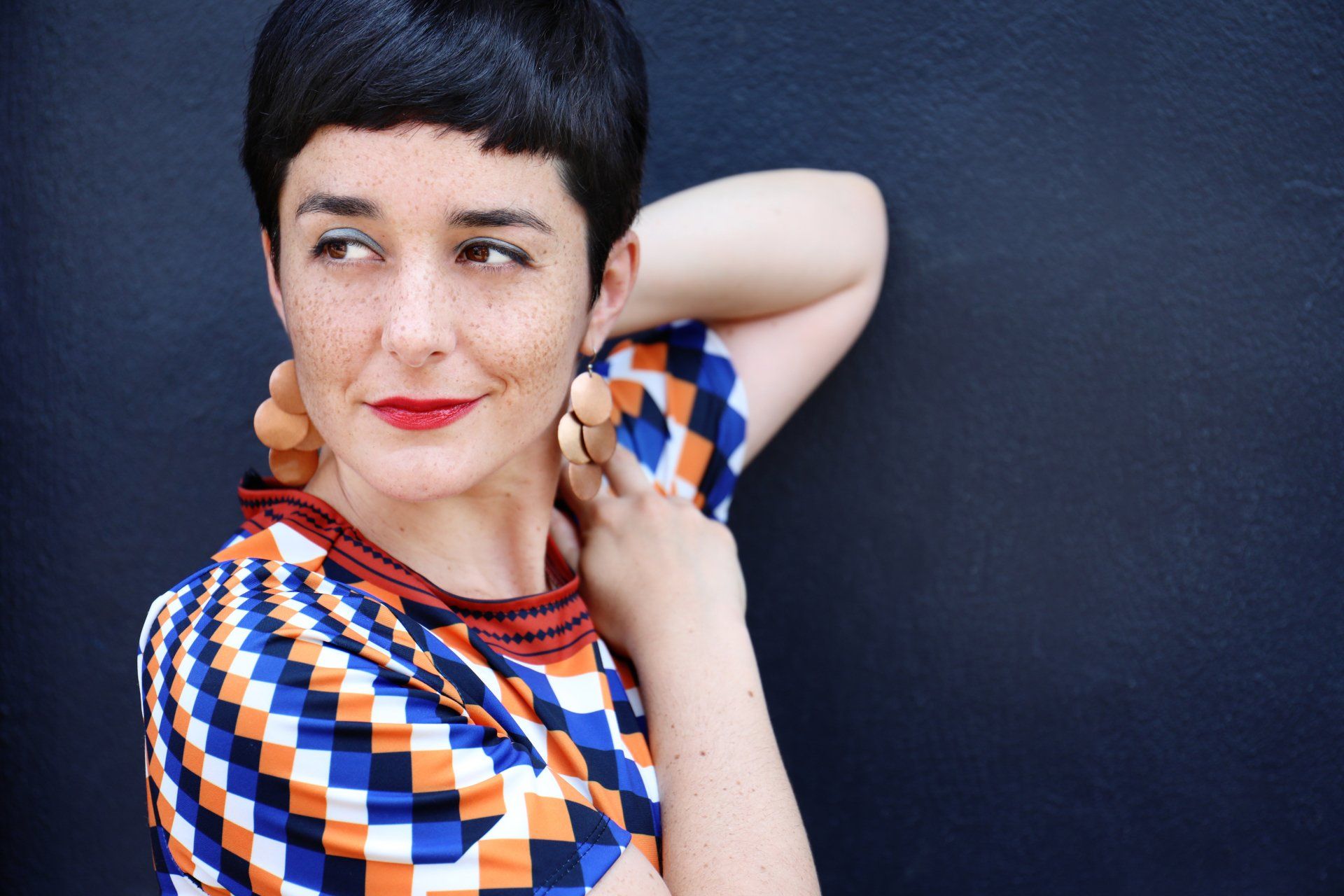Equally prized as a vocalist, guitarist and composer, Meza has uplifted audiences worldwide with her assured and beautiful singing, highly advanced guitar (both self-accompaniment and blistering solo work), and vivid, melodic songwriting that reveals complex layers with every listen. She’s been hailed by The New York Times as “a bright young singer and guitarist with an ear for music of both folkloric and pop intention.” In 2019 she released her fifth album, Ambar, on Sony Music Masterworks, producing it herself and proudly unveiling the Nectar Orchestra, a collaboration with bassist and arranger Noam Wiesenberg. Meza moved from Chile to New York at 23, graduating in 2013 from The New School for Jazz and Contemporary Music, where she studied with Peter Bernstein, Vic Juris, Sam Yahel, Steve Cardenas and Gil Goldstein, among others. Bringing a sound full of warmth and clarity to the New York jazz scene ever since, she has distinguished herself as a member of Ryan Keberle’s Catharsis and Fabian Almazan’s Rhizome, and has also worked with Paquito D’Rivera, Aaron Goldberg, Sachal Vasandani and many more. She has appeared at festivals worldwide as well as NPR’s Tiny Desk Concert series and WBGO’s The Checkout, garnering praise from The Village Voice, The Wall St. Journal and many other outlets. In 2018, Pat Metheny enlisted her to perform and act as musical director for his NEA Jazz Masters induction ceremony at The Kennedy Center in Washington D.C.
Equally prized as a vocalist, guitarist and composer, Meza has uplifted audiences worldwide with her assured and beautiful singing, highly advanced guitar (both self-accompaniment and blistering solo work), and vivid, melodic songwriting that reveals complex layers with every listen. She’s been hailed by The New York Times as “a bright young singer and guitarist with an ear for music of both folkloric and pop intention.” In 2019 she released her fifth album, Ambar, on Sony Music Masterworks, producing it herself and proudly unveiling the Nectar Orchestra, a collaboration with bassist and arranger Noam Wiesenberg. Meza moved from Chile to New York at 23, graduating in 2013 from The New School for Jazz and Contemporary Music, where she studied with Peter Bernstein, Vic Juris, Sam Yahel, Steve Cardenas and Gil Goldstein, among others. Bringing a sound full of warmth and clarity to the New York jazz scene ever since, she has distinguished herself as a member of Ryan Keberle’s Catharsis and Fabian Almazan’s Rhizome, and has also worked with Paquito D’Rivera, Aaron Goldberg, Sachal Vasandani and many more. She has appeared at festivals worldwide as well as NPR’s Tiny Desk Concert series and WBGO’s The Checkout, garnering praise from The Village Voice, The Wall St. Journal and many other outlets. In 2018, Pat Metheny enlisted her to perform and act as musical director for his NEA Jazz Masters induction ceremony at The Kennedy Center in Washington D.C.
In her boldest artistic statement to date, vocalist/guitarist/composer Camila Meza debuts on Sony Music Masterworks with Ámbar, her fifth album as leader. The album features Meza with the Nectar Orchestra, a hybrid ensemble with string quartet that she formed with bassist Noam Wiesenberg. Together with Wiesenberg (who arranged all the strings on the album), pianist/keyboardist Eden Ladin, drummer/percussionist Keita Ogawa, violinists Tomoko Omura and Fung Chern Hwei, violist Benjamin von Gutzeit and cellist Brian Sanders, Meza reaches great heights as a singer, guitar soloist, songwriter and producer as well, pulling myriad elements together into a spellbinding and cohesive musical vision.
Following up Traces (2016), which won two Independent Music Awards and established Meza as a Rising Star in both guitar and female vocal categories in the DownBeat Critics Poll, Ámbar reflects Meza’s immersion in jazz, American pop and Latin American music across eras and genres. Along with her own vibrant originals, she covers material by Elliott Smith, Antonio Carlos Jobim and Chico Buarque, Milton Nascimento and Mexico’s Tomás Méndez, along with a pointedly topical rendition of “This Is Not America” by Pat Metheny and David Bowie.
“What’s amazing about this project,” says Meza, a native of Chile, “is the friendships I’ve developed with all of these musicians — I’ve been 10 years in New York, so at this point you can really say that colleagues of yours are also really good friends. In Noam I’m collaborating with an incredible musician but also one of my very best friends. Ámbar is half his intention as well — he worked on it as much as I did. He also comes from an arranging family — his father [Menachem Wiesenberg] is one of the most respected composers in Israel, so it’s really part of his heritage.”
There’s a familial bond for Meza too at the heart of the title track “Ámbar”: it means “amber” in Spanish, and that is how one translates her adored grandfather’s last name, Bernstein. Meza lost him just months after moving to New York and was not able to return to Chile at that time. “I had to mourn by myself,” she recalls. “I turned to music, and wrote a song about connecting and reaching the spirit of a lost loved one. By singing you can give a proper farewell, or even meet them whenever you want. We don’t necessarily die.”
Years passed and Meza encountered that word again, Ámbar, “a resin that becomes petrified,” she says. “It’s a response of trees to injuries and wounds. They cover the wounds with this resin, and I thought of how my song had become like amber for that moment, how it petrifies, and the song also remains forever. It all revolved around the idea of healing, which is important individually but also as a society. We are in that moment where we need to see ourselves, look at our wounds and try to heal them.”
On the moving “All Your Colors,” Meza begins calmly as keyboards and then strings surround her, easing into tempo with bright pizzicato figures. Wiesenberg’s arrangements have strings providing warm legato and enveloping harmony but also percussive rhythm. “It’s very much a love song,” Meza offers, “but it also reflects a little bit on the effort that is asked of humans to achieve love’s fullest potential. And after all that wondering and reflecting there’s this moment where the ultimate sense of love is described, where there’s no separation — we’re totally connected. The title refers to how we paint ourselves with our ideas, our thoughts, the way we think of our identity — I can imagine all these things being colors.”
“Kallfu,” or “blue” in Mapudungun, the language of southern Chile’s native Mapuche people, was inspired by a trip to Patagonia and the feeling of peace that Meza found there. “When it’s almost dusk in the area,” she remembers, “everything becomes blueish, hence ‘Kallfu.’ There was a lot of noise in my head at the time, a lot of it coming from the current political and social climate. While in Patagonia I was reminded of the most essential aspects of our life. If you believe in some kind of energy bigger than us, you will find it very clearly there, and to me nature has always been that.” Fittingly, the joy in Meza’s repeating lyric couldn’t be clearer: “Y vuelve la calma a mi ser, y vuelve la calma” (“and calm returns to my being, calm returns”).
“Milagre dos Peixes,” or “Miracle of the Fishes,” one of Milton Nascimento’s most rapturous melodies (best known to American audiences via Wayne Shorter’s Native Dancer), was in Meza’s quartet repertoire but “it felt very intuitive to bring it to this setting,” she says. “There’s something powerful and urgent about it. Milton was part of a movement in Brazil — they were writing songs with hidden political messages to avoid censorship from the dictatorship, but they still succeeded in boldly criticizing the regime. So there’s a kind of surrealism to the imagery in Fernando Brant’s lyrics, but with a devastating sense of reality.”
“Cucurrucucú Paloma” (“coo-coo dove”) went beyond its origins in a 1954 Mexican film to become widely known throughout South America, spawning versions by Harry Belafonte and many others, including the great Caetano Veloso in a striking scene from Pedro Almodóvar’s 2002 film Talk to Her (Hable con Ella). Meza had once performed the song with Banda Magda, led by vocalist Magda Giannikou, but she concludes Ámbar with her own version, just solo acoustic guitar and voice, luxuriating in the song’s stark sustained notes and sheer emotion.
“This Is Not America,” which Metheny and Bowie contributed to the 1985 film The Falcon and the Snowman, is set to a slow backbeat that grows to a sweeping crescendo in the ending rock-tinged vamp, prompting Meza to joke: “It connects me to my teenage rage!” The lyric here becomes a kind of “catharsis,” in Meza’s words. “The song might seem like a negation, approaching something from the perspective of what it’s not, which is usually not my style — I try to find a place where we can uplift ourselves — but in this case it felt needed. In order to actually get to that place, we first need to be able to say what is wrong. Separating families at the border is wrong, discrimination is wrong, failing to protect nature is wrong. Going back to the idea of healing, it’s important to say what’s not working in order to find its solution.”
One can hear an extraordinarily close attention to sonic detail throughout Ámbar, from Meza’s subtle rhythm guitar parts and iridescent, superbly melodic solos to Ogawa’s blend of drum set and percussion, a sound Meza chose very consciously: “Sometimes just a little bell can create a whole new atmosphere, a whole new emotion.” Alongside the strings, Ladin’s panoply of sounds add untold layers to the music as well.
“In this setting you have to be really tasteful because there’s so much harmony happening,” Meza comments. “I love having people who know exactly when the music needs them, and when it’s ok to just lay a pad, to serve the greater good.” Still, there are moments, like “Awaken,” in which Ladin takes to the Moog synthesizer in a heated round of trading with Meza’s guitar, when the amassed instrumental forces let loose and the band shows what it’s made of. Ámbar is a breakthrough, steeped in metaphor and romance and complex emotion, animated by the high-level interplay and agility of a state-of-the-art jazz group. In Meza’s ever-evolving artistic sensibility, everything comes together.


